You know you want to visit this temple because of French Fry Box Cat.
I know a serious political blogger would be writing a piece right now all about how Taiwan can't be compared to Afghanistan, but honestly, I think that conclusion is so obvious that it's truly beneath me. The US failed at nation-building. Taiwan is already a functioning nation with a competent government that enjoys rule of law. The two countries are so different as to be utterly incomparable, so let us talk about something else because I simply cannot with that particular story.
Now that that's off my chest: Taoyuan!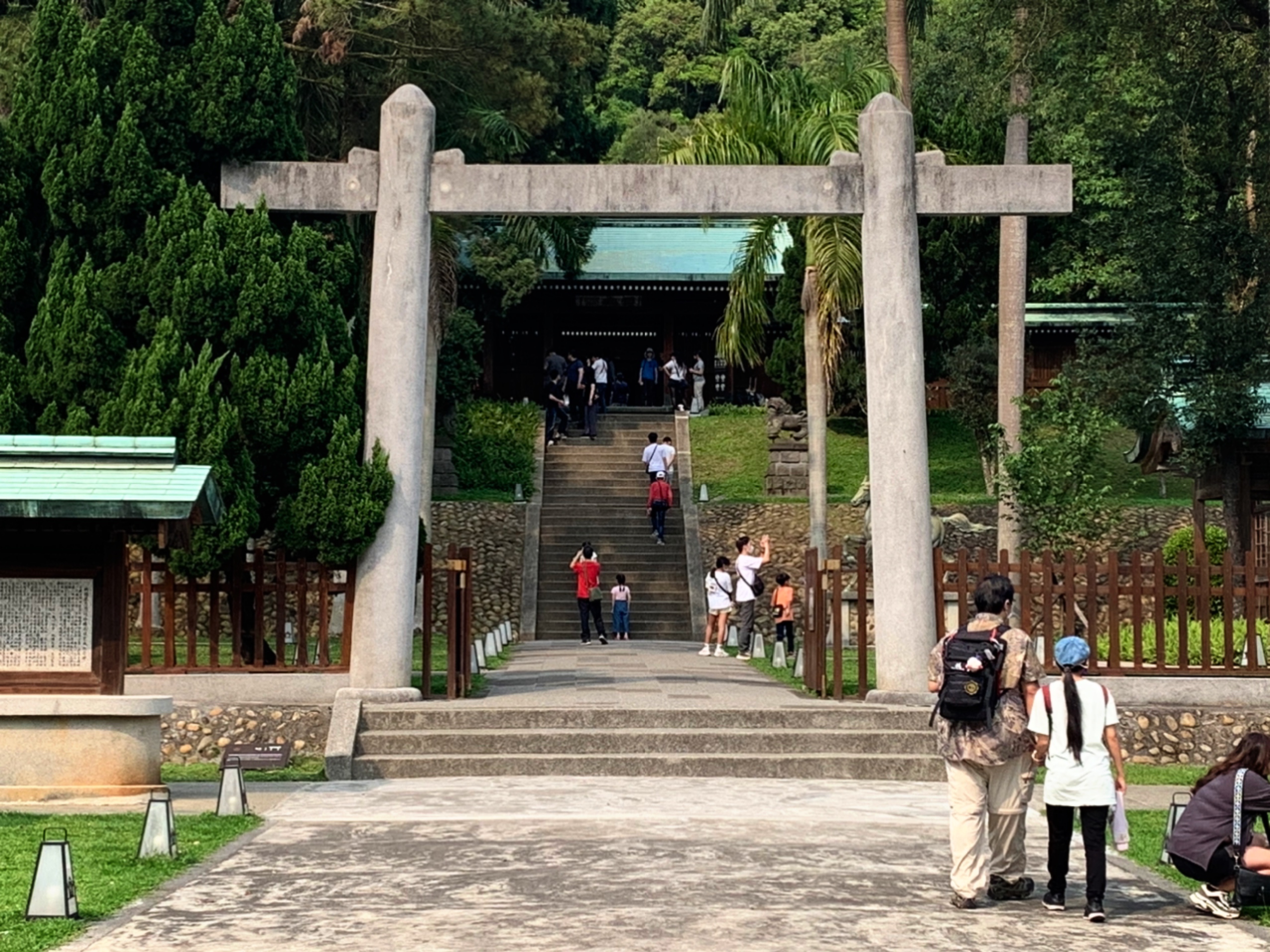
I still maintain that while greater Taoyuan has some attractions, Taoyuan as a city is not particularly interesting. But, there are still a few things to interest the casual visitor. Most notably, the well-preserved Japanese-era temple at the Taoyuan Martyrs' Shrine and Cultural Park (桃園忠烈祠暨神社文化園區), on a hill at #200, Section 3 Chenggong Road (成功路三段200號).
This particular temple, built in 1938, is astoundingly intact: in fact, it's the most intact Shinto shrine in all of Taiwan. It's a rare example of preservation of Japanese cultural influence rather than intentional destruction, although to be sure the "martyrs" now enshrined here are certainly not Japanese.
You can get there from Taoyuan Train Station by taking a taxi for less than NT$200, and there are a few buses that go up the hill. My recommendation is to take the taxi up and the bus back. There are also buses from Taipei City (buses 9069 and 9069A both run between Nanjing Fuxing MRT and Taoyuan Veterans' General Hospital, next door to the shrine) and transport to and from Taoyuan HSR, though it takes awhile.
Most Shinto shrines and other Japanese cultural relics in Taiwan were either destroyed, "left to the elements" to rot naturally, or occupied as civil servant dormitories for years after the ROC colonial regime took over from the Japanese one. Those that survived into the 1970s, were torn down right around then. This particular shrine was slated for demolition in the 1980s, but by then consciousness of Taiwanese history could be spoken about more than during the worst years of the White Terror, and a public outcry saved it. It was renovated in 1986, designated as a Level 3 historic site in 1994, and underwent renovations again around 2017, which also happened to be the first time I tried to see it.
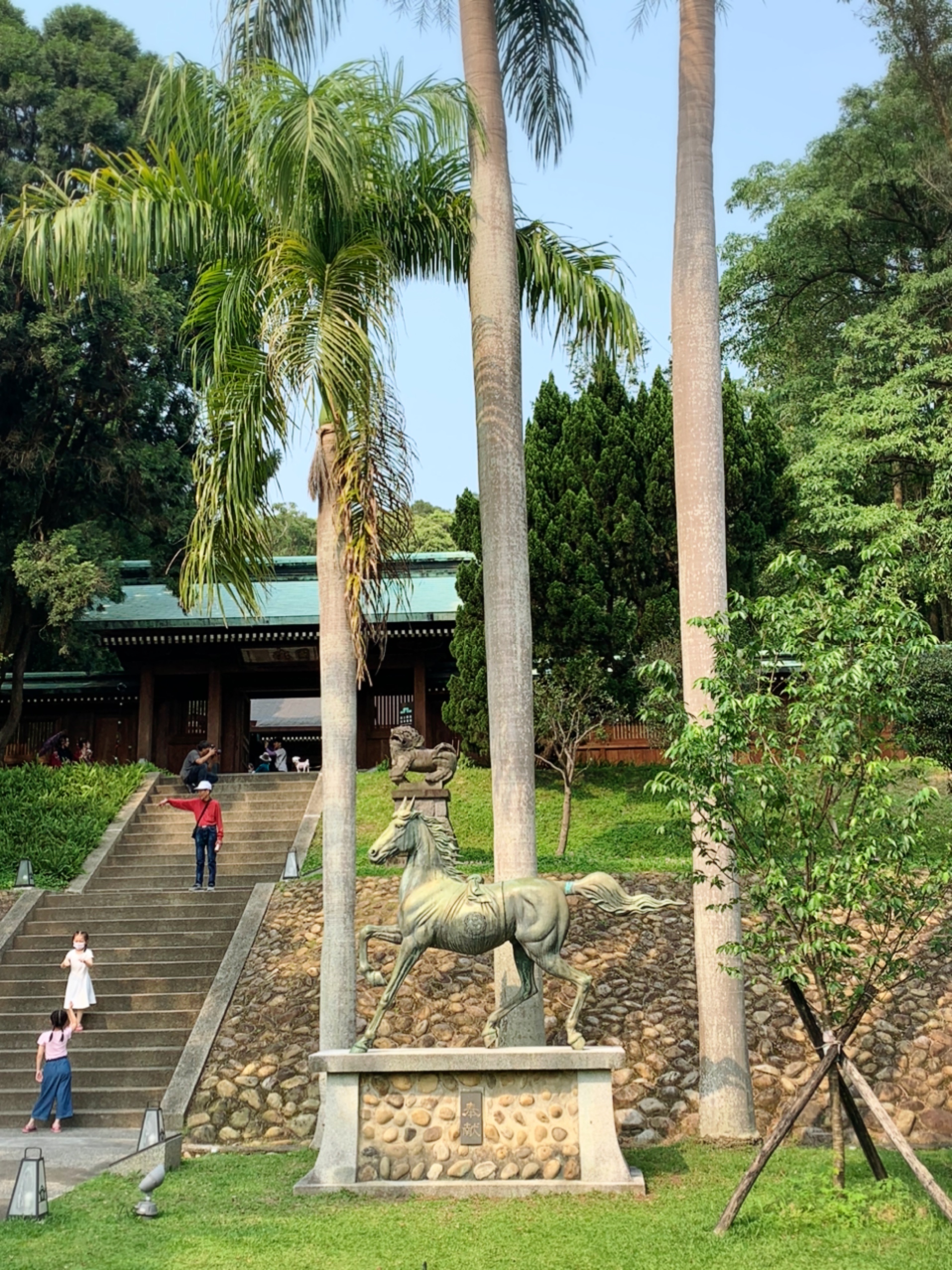
The site offers several pavilions with beautifully gabled roofs -- including a ritual washing (misogi) pavilion, a shrine office with a distinctly Japanese portico, a main temple and a hondono supported by wooden pillars with copper tile and "turtle belly" decoration, though it's not open to the public. The temple itself is still a martyrs' shrine, and indoor photography is prohibited.
Also of note is the intact torii, the traditional gate, and a bronze horse (for more on the bronze horses of Taiwan, read Taipei, City of Displacements. This particular horse even gets a mention). These horses were common in Taiwan and some other Japanese colonies. Interestingly, they all look quite similar, but don't seem to be common in Japan.

The brochure says they "symbolize the ride of the gods between the divine sanctuary and the mortal world", though of greater interest to me was the shrine's emblem engraved on the side, which has in fact endured a great deal of wear.
With gorgeous greenery and beautifully restored buildings, local residents come up here for fresh air -- we met some folks with their cats in boxes -- and it's a popular spot for cosplay photography. I recommend coming early, as the shrine closes early -- 5pm, to be precise.
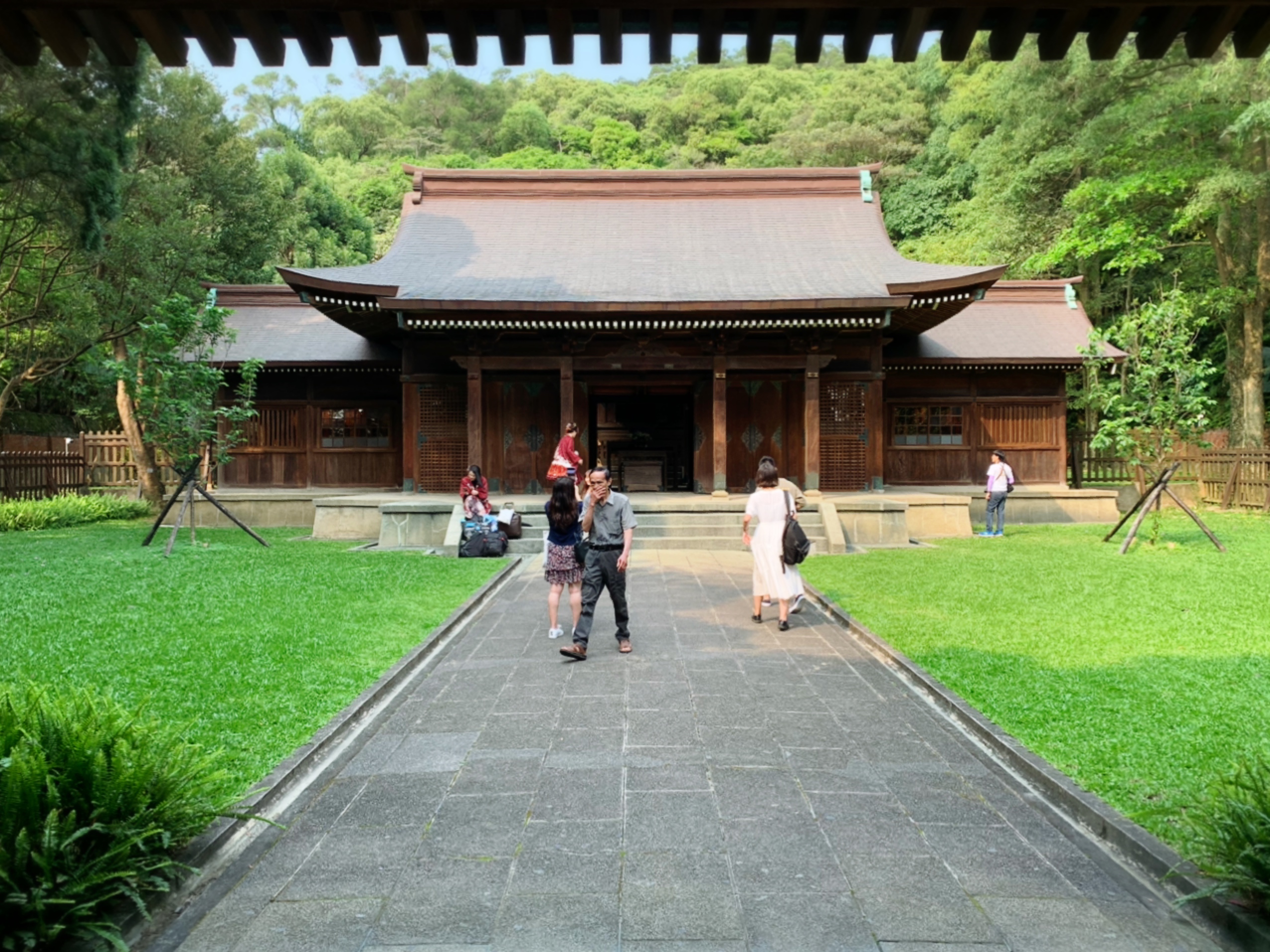

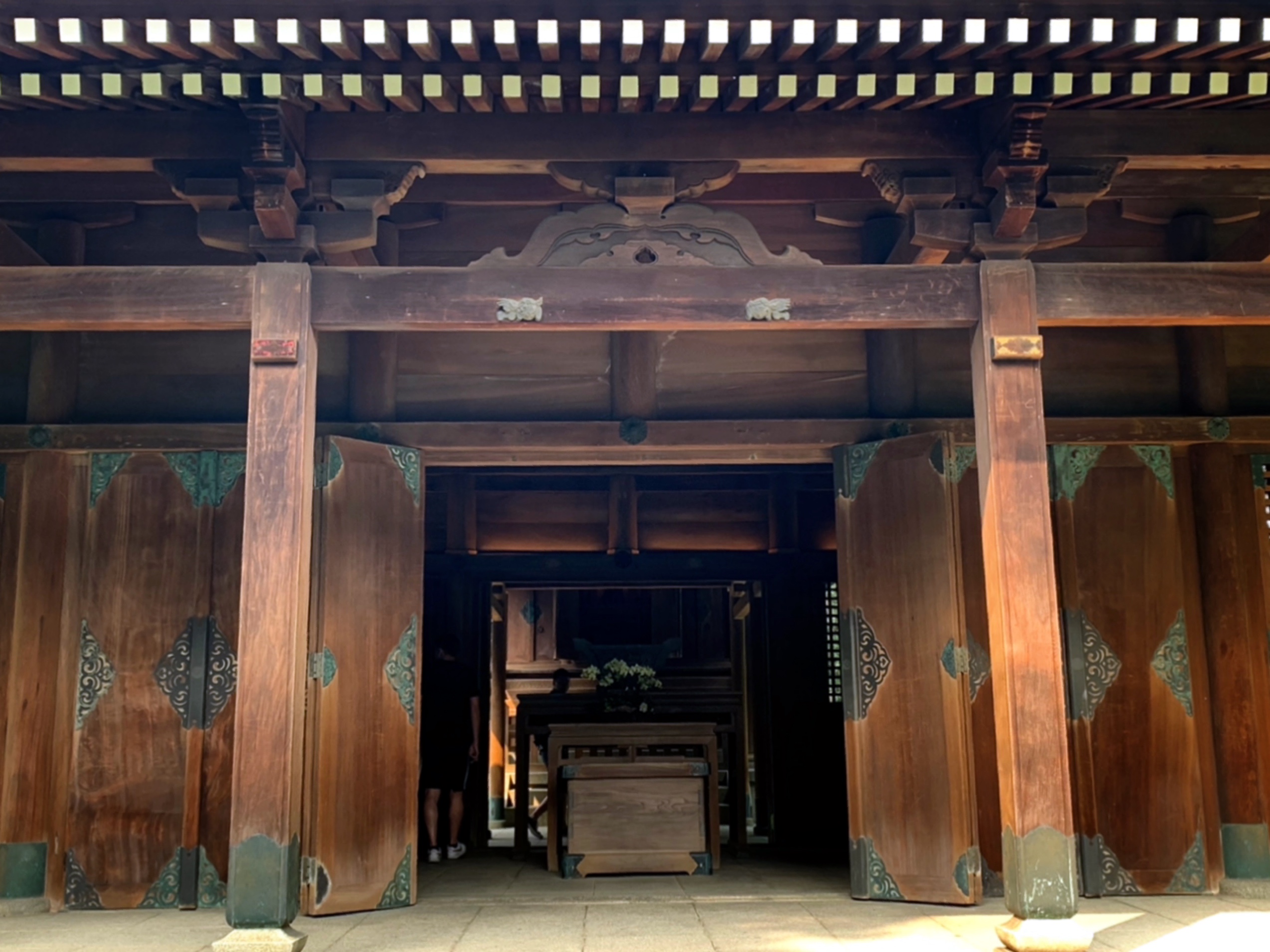
There's a 7-11 nearby where you can grab water or call a taxi, and almost directly across the street on the way to the bus stop, you'll find an exceptionally hip cafe called Luna (鹿點咖啡), which has two floors of excruciatingly fashionable shabby-chic seating. They also sell coffee beans and high-quality insulated coffee thermoses. It's an excellent place to spend a lot of money for quality (and ultra-hip) coffee while you figure out when the bus you want will arrive.
It's hard to figure out if this place is deer-themed (implied from the Chinese name) or moon-themed (from the English name) so I can only suppose it intends to be both.
HN Nail features in a book about interesting Taiwanese facades:

It's fun, the neighborhood is fairly lively and pleasant to walk around in, and it's very close to a transport hub.
And the area has some interesting signage as well:

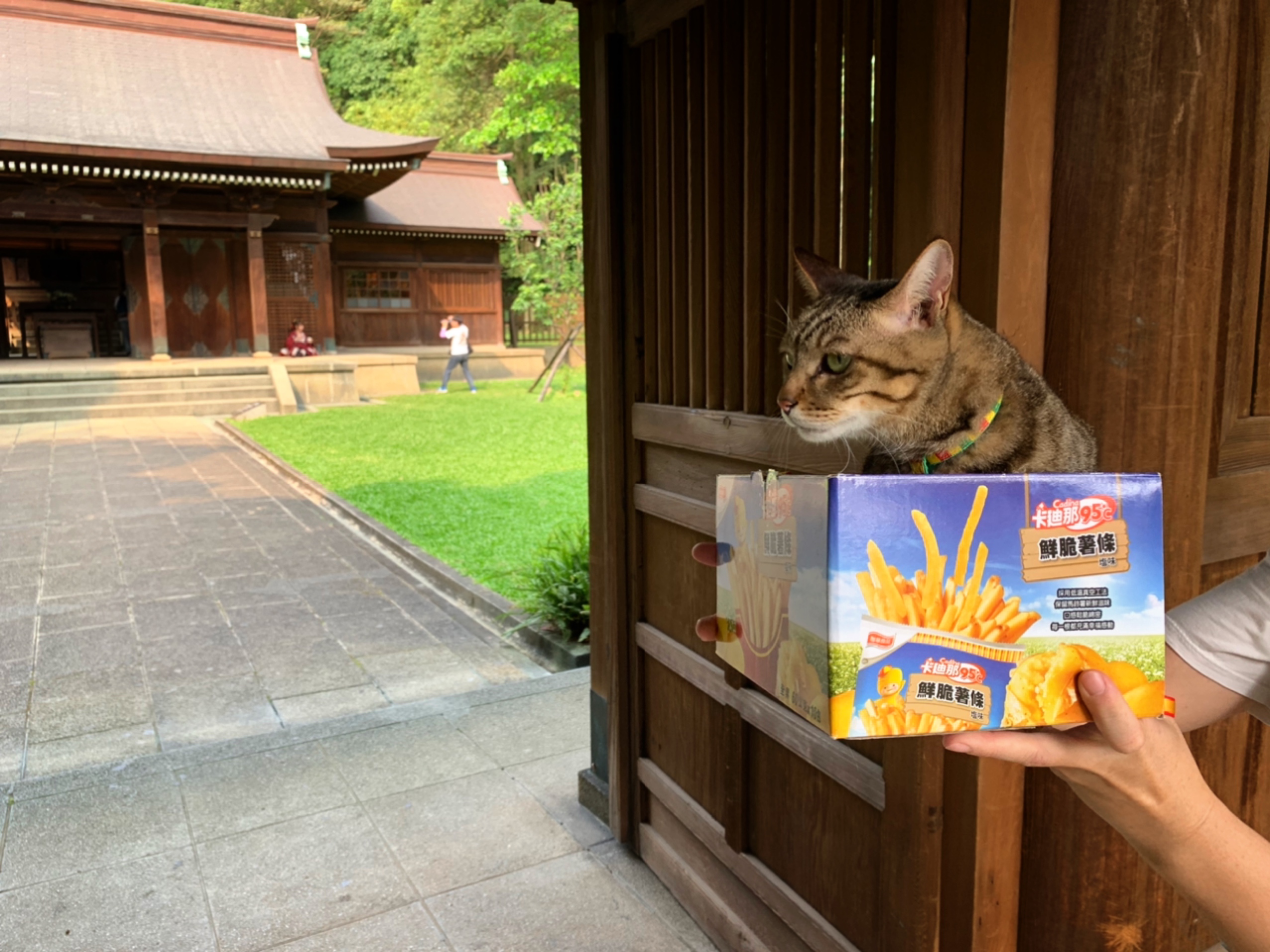
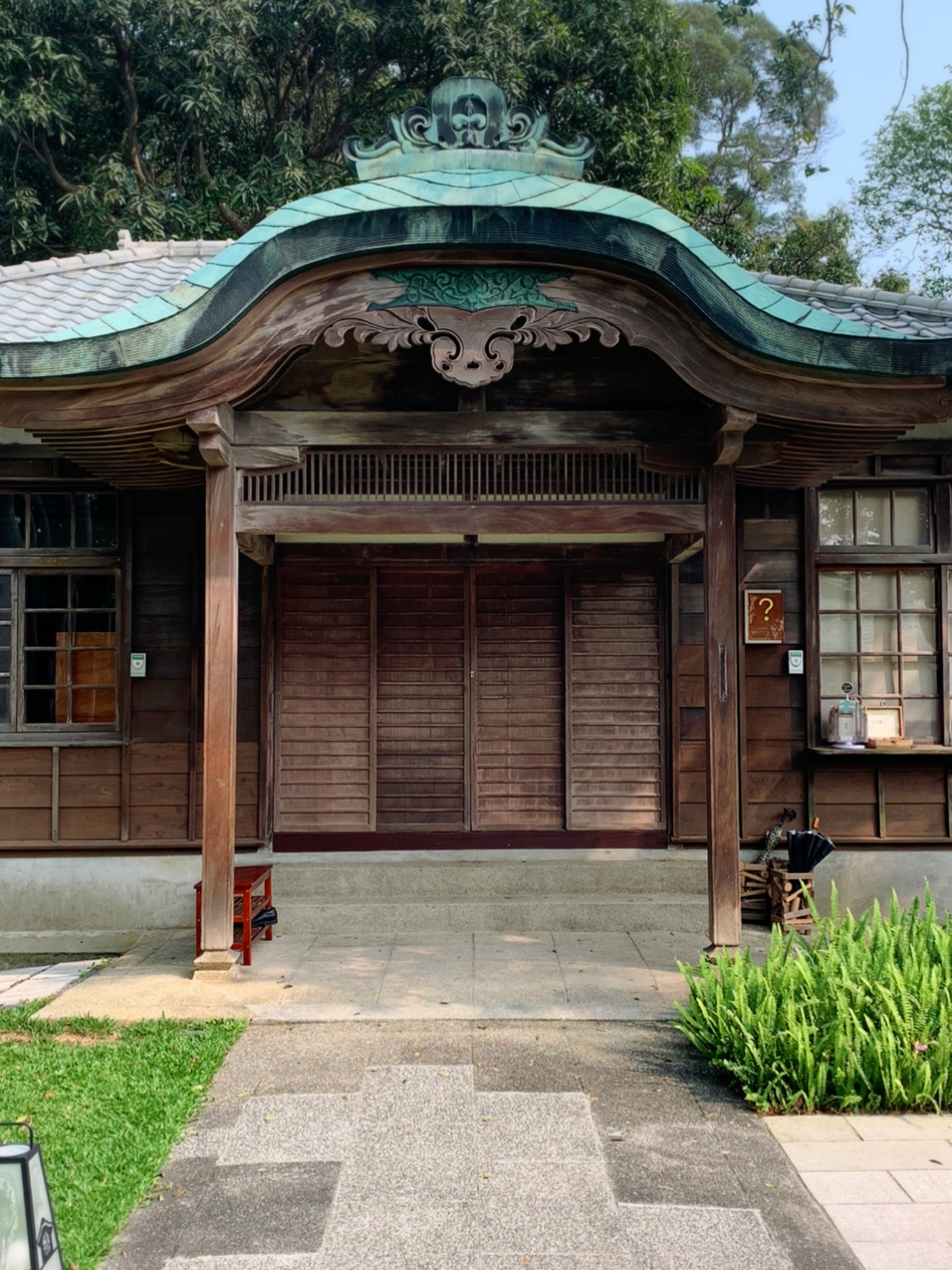
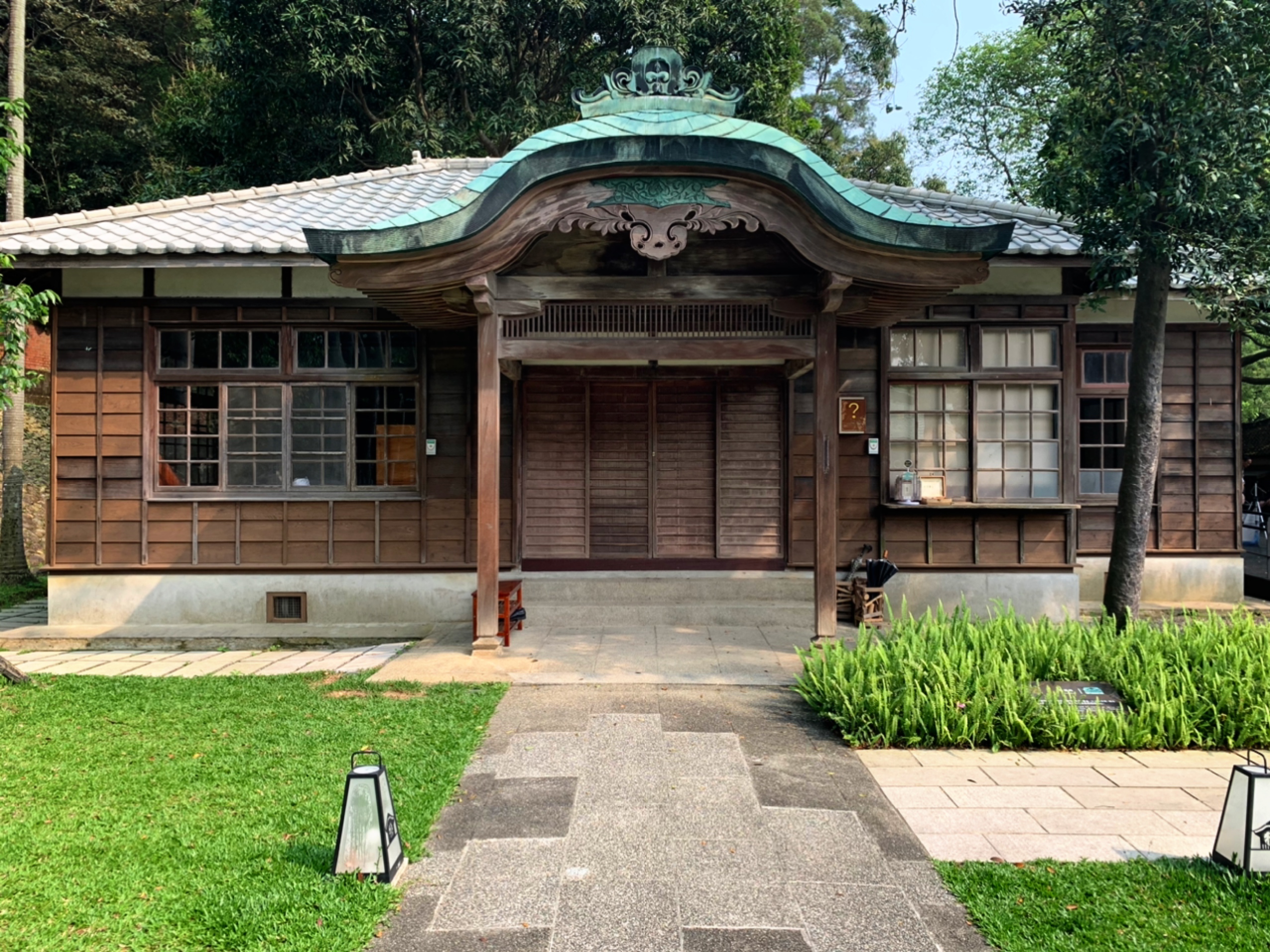


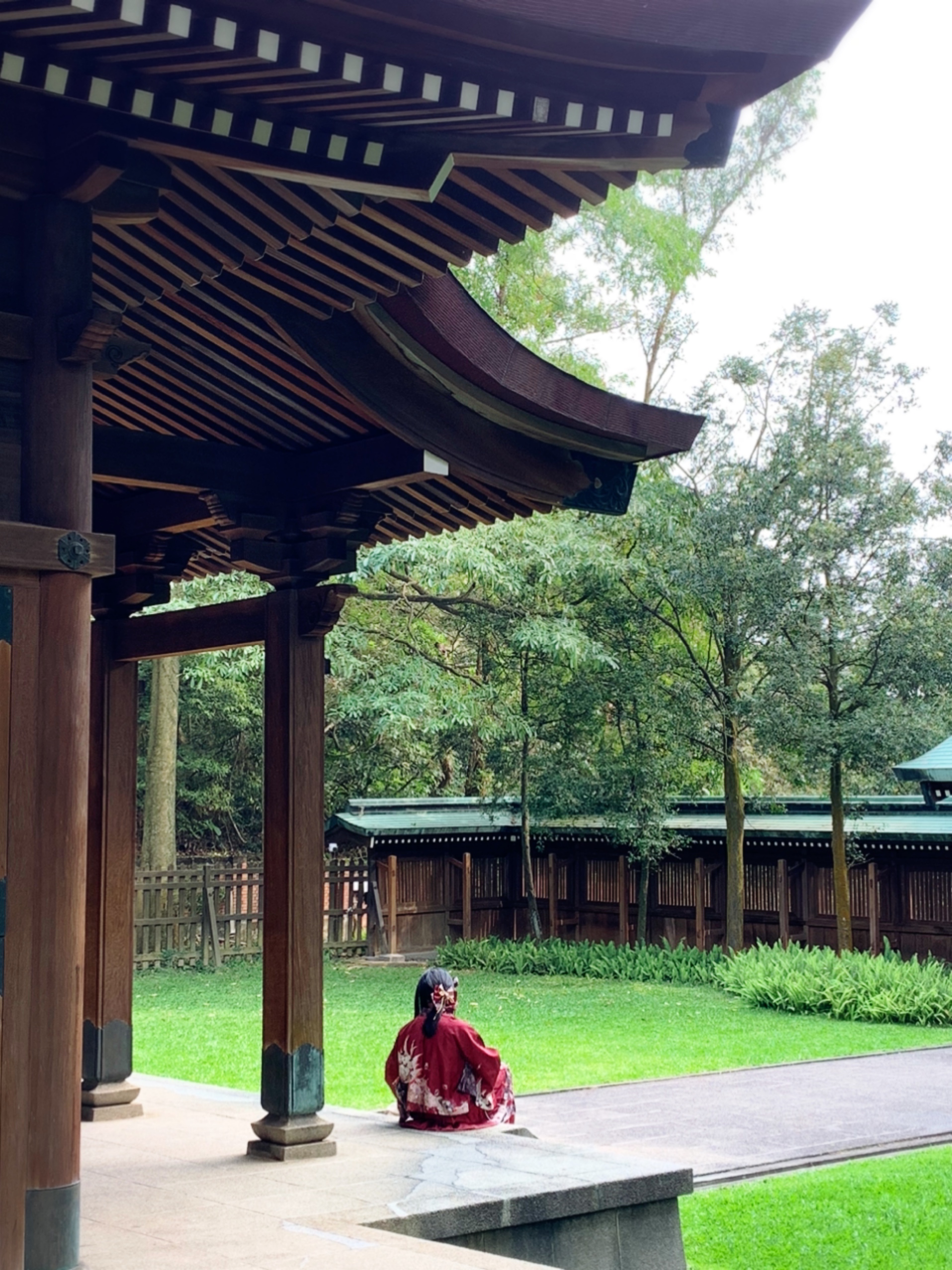

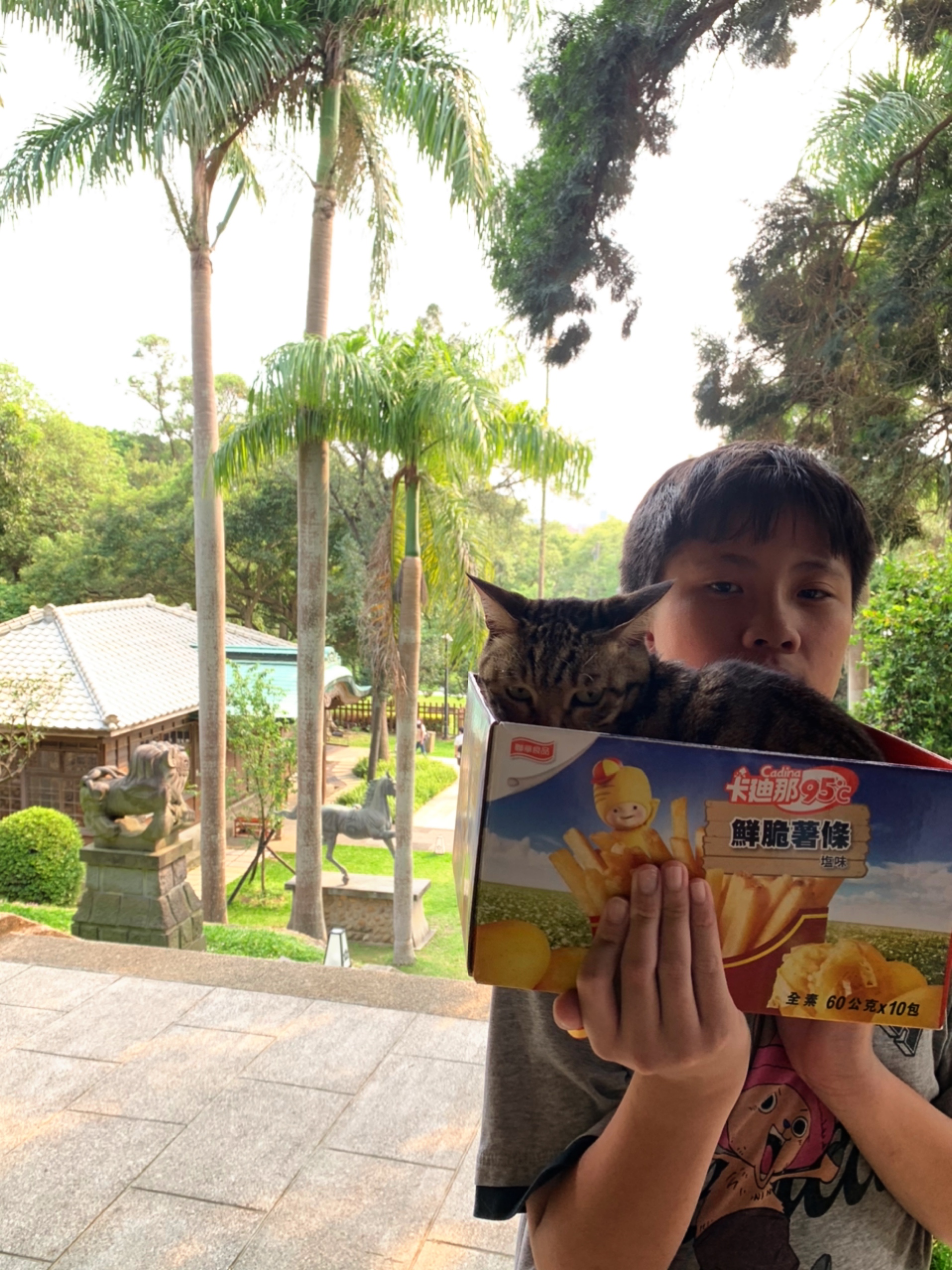



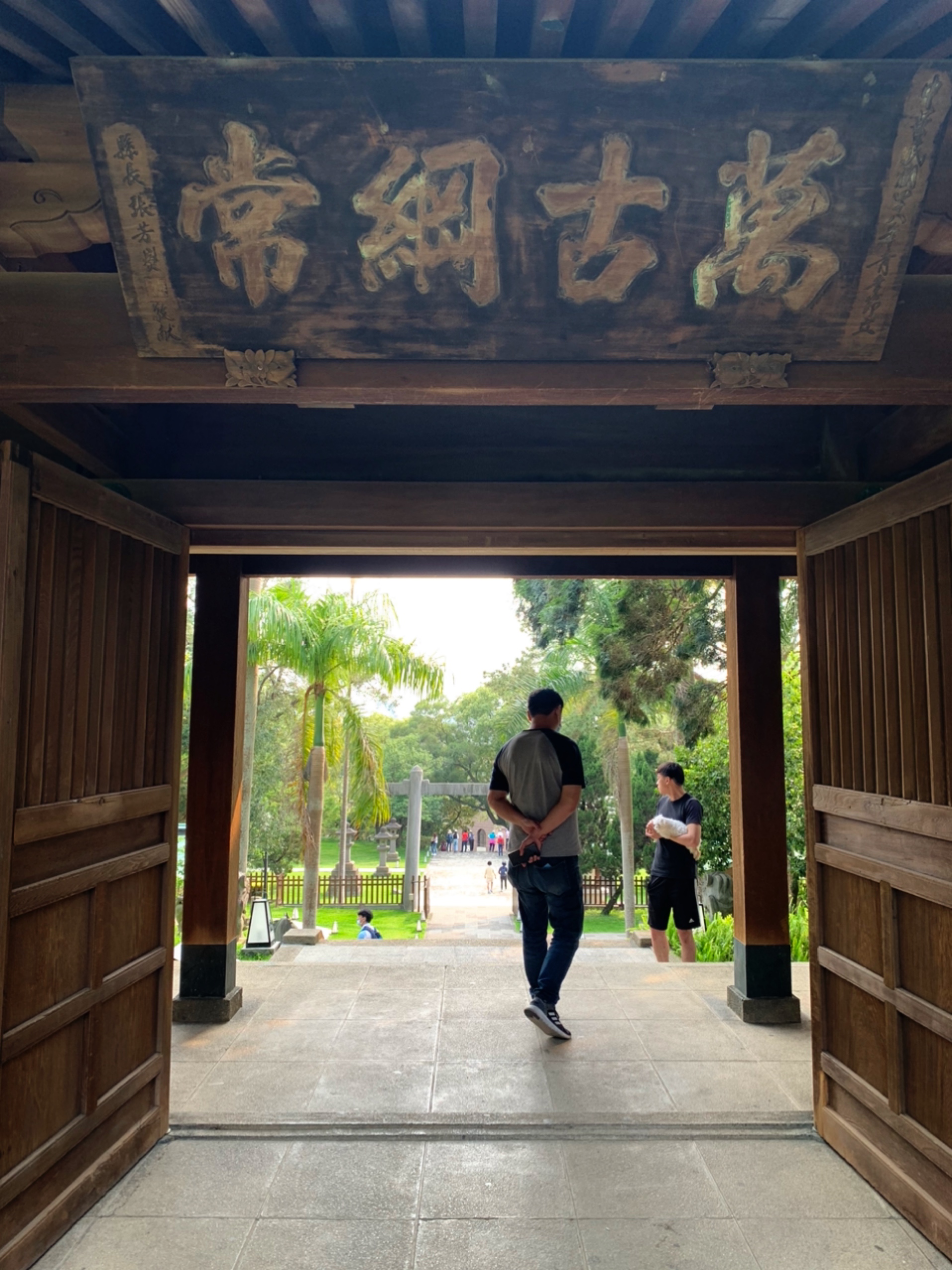

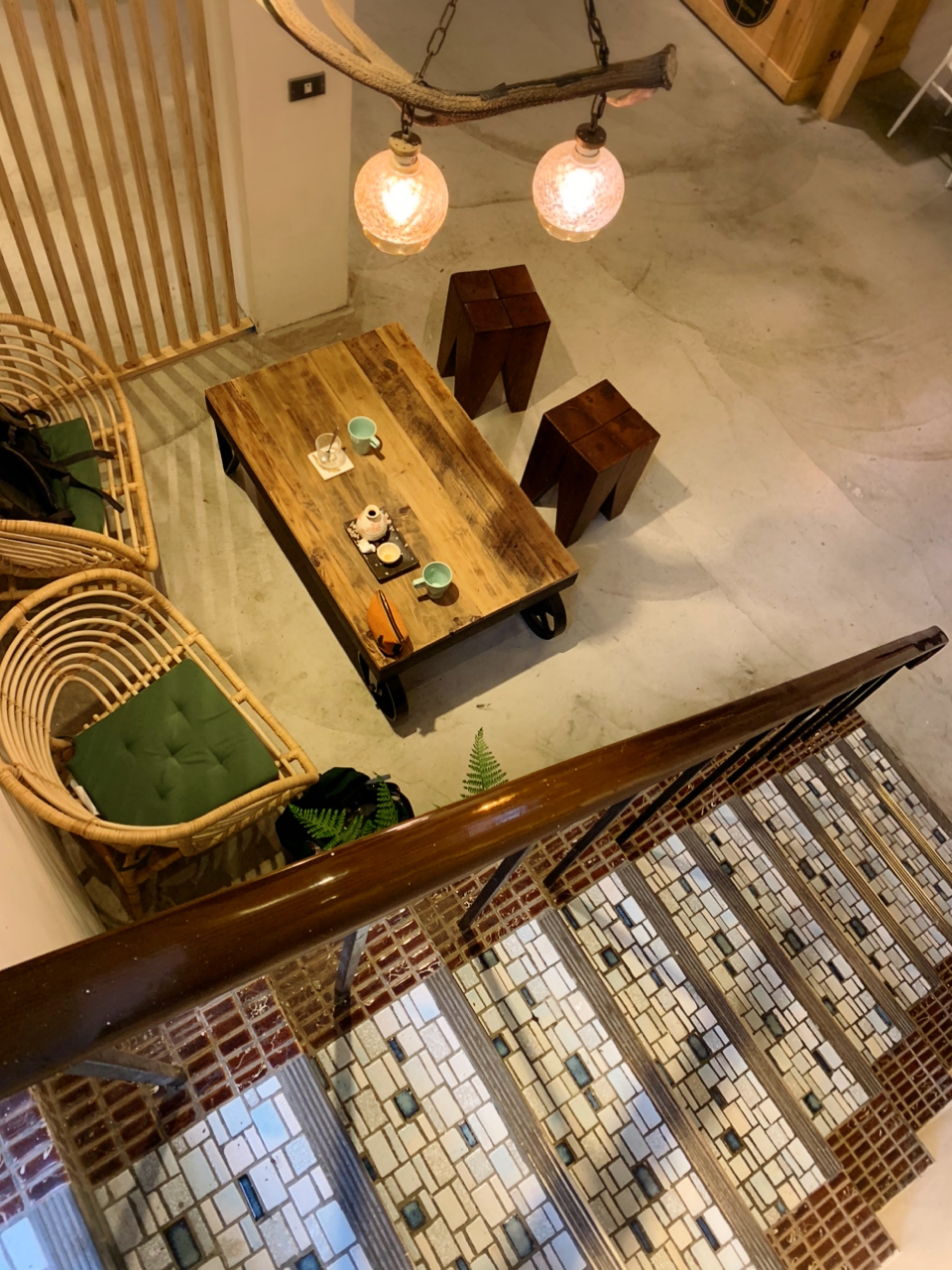




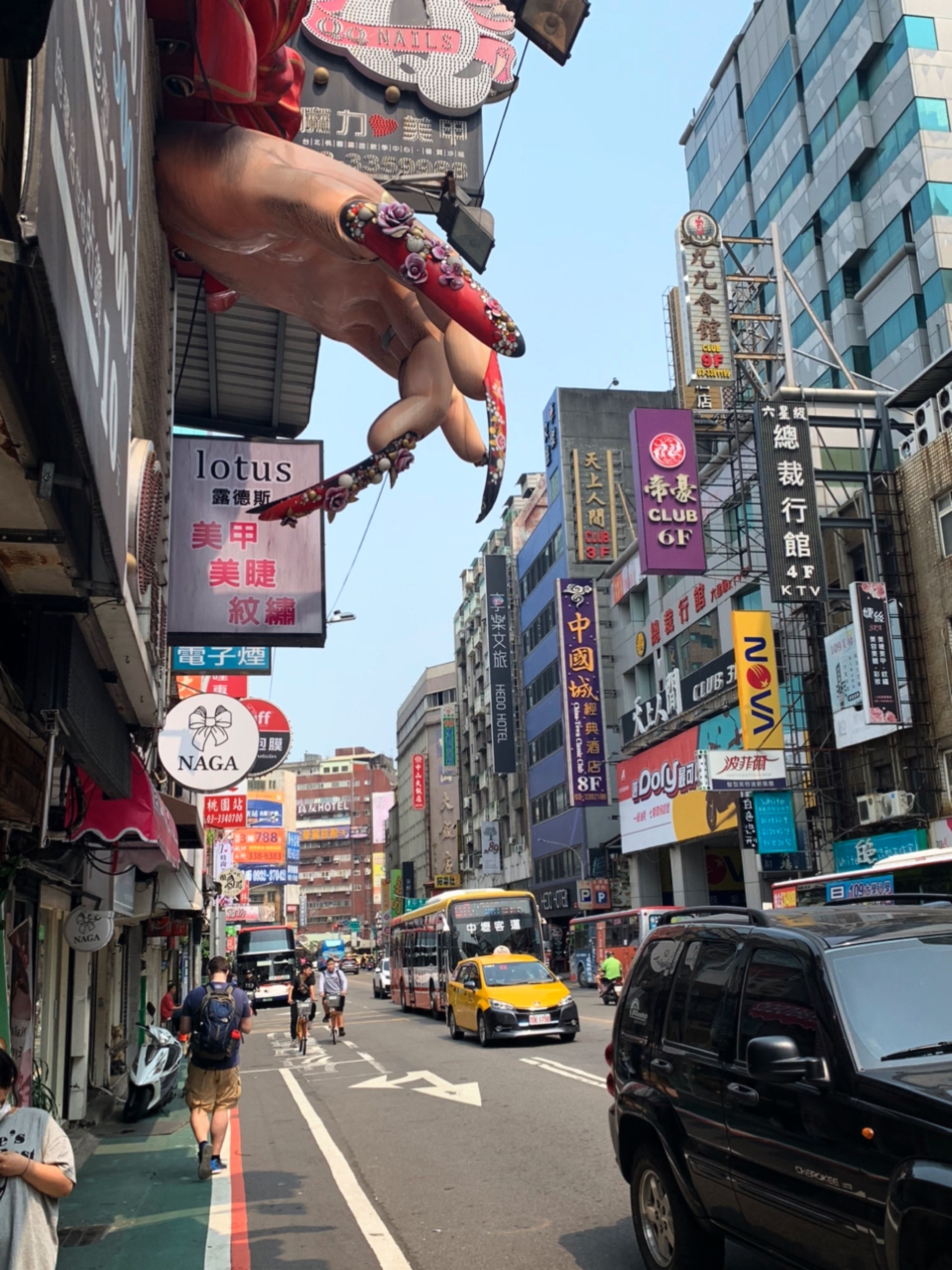
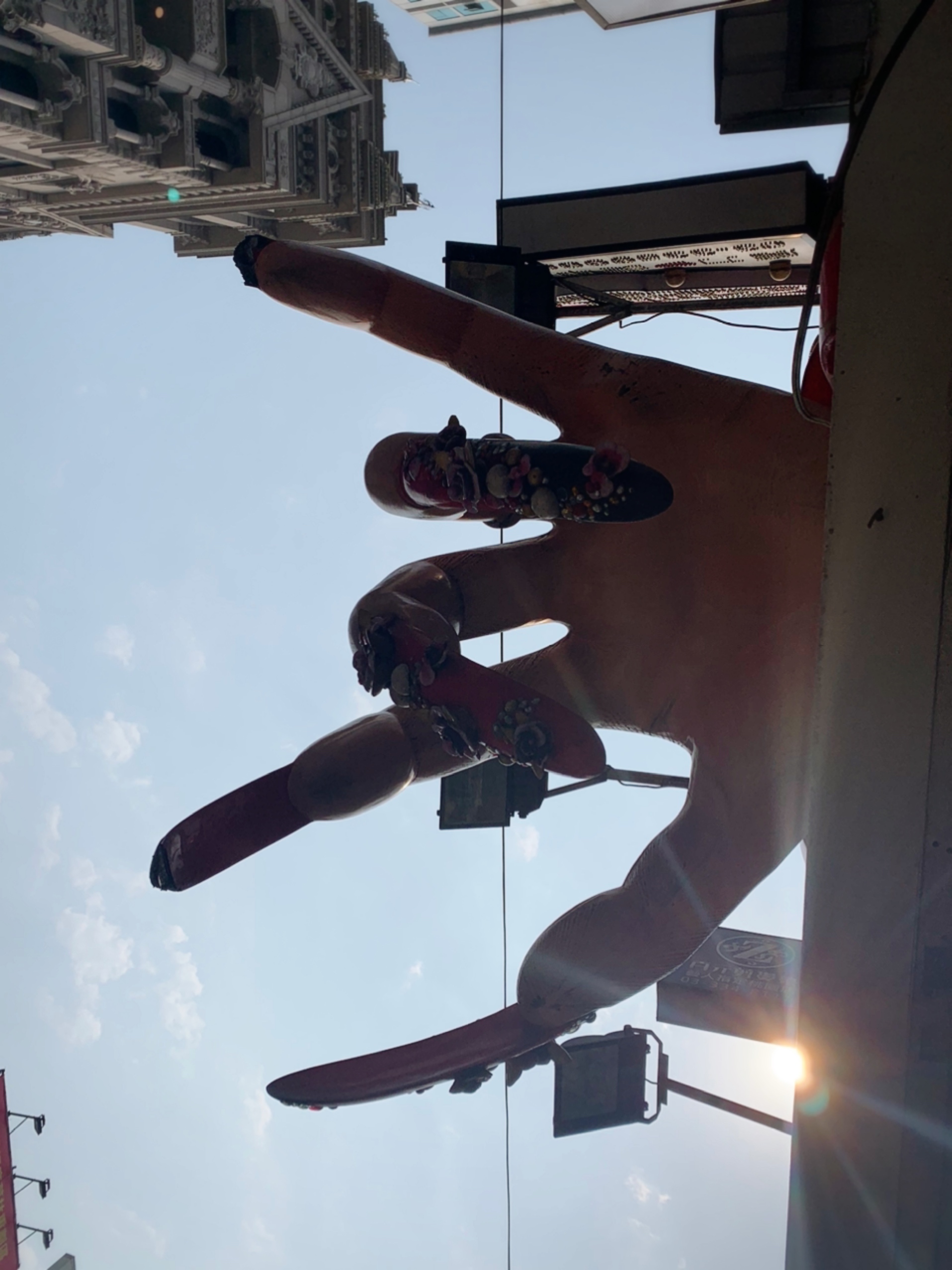
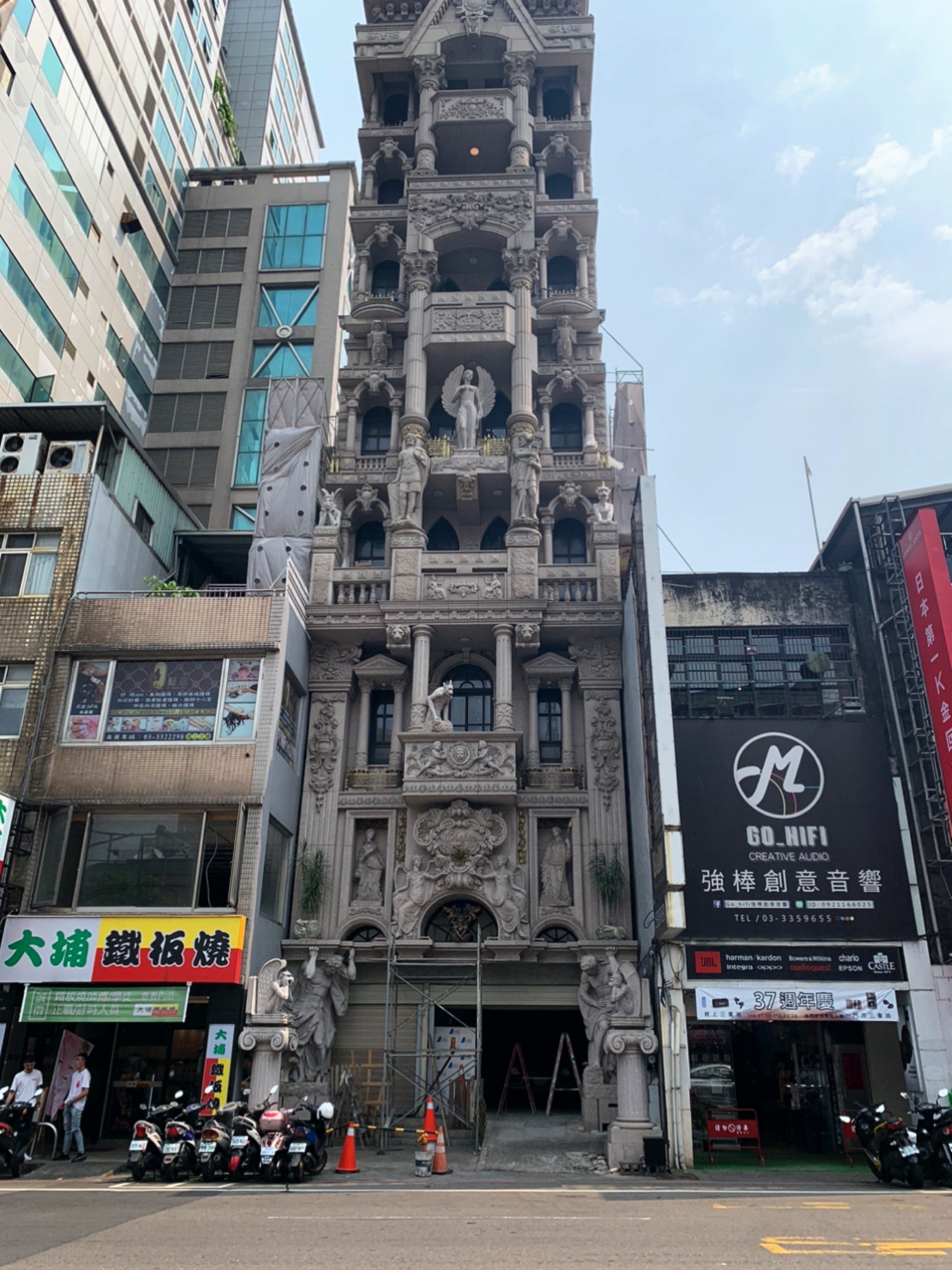

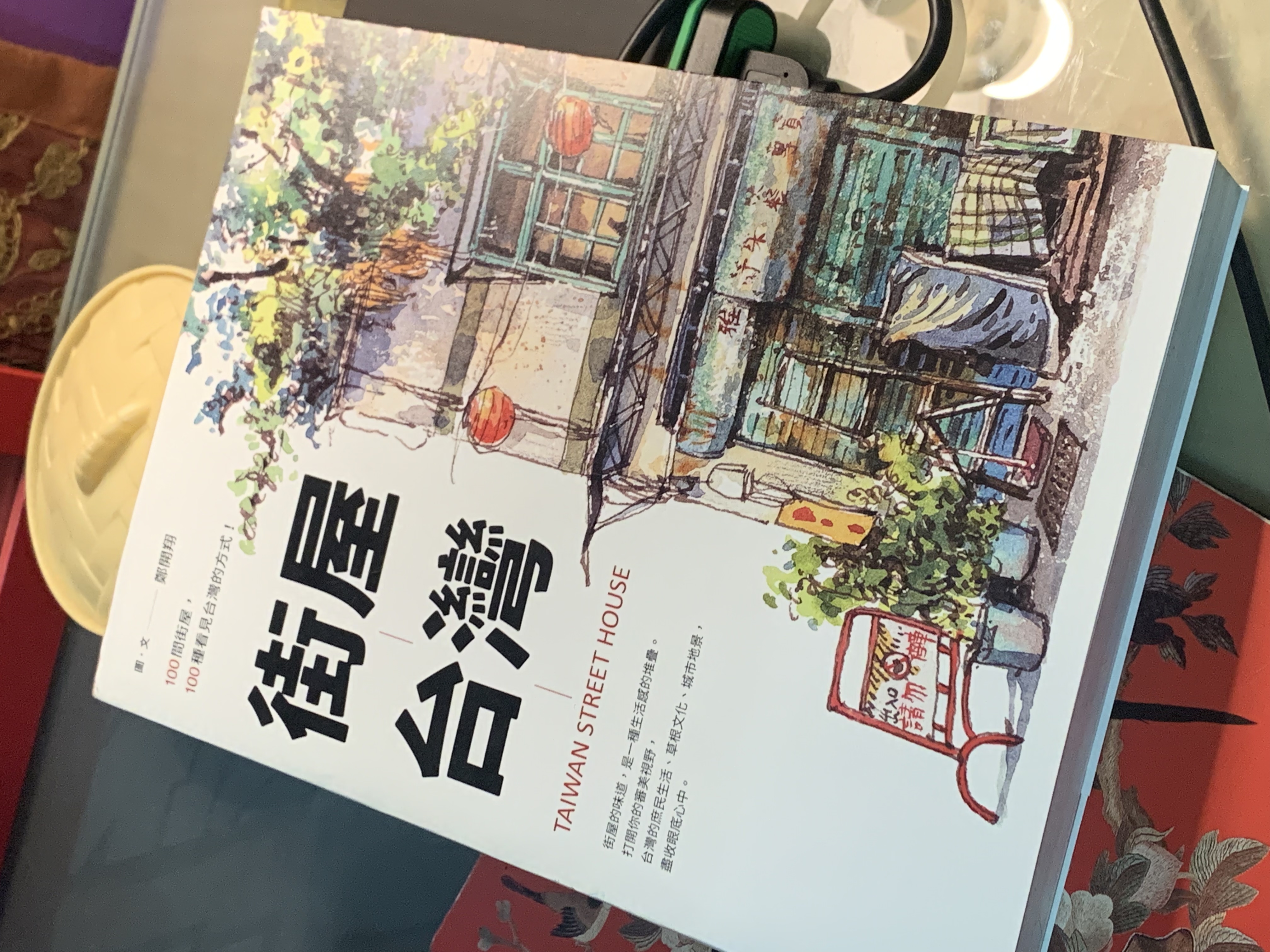
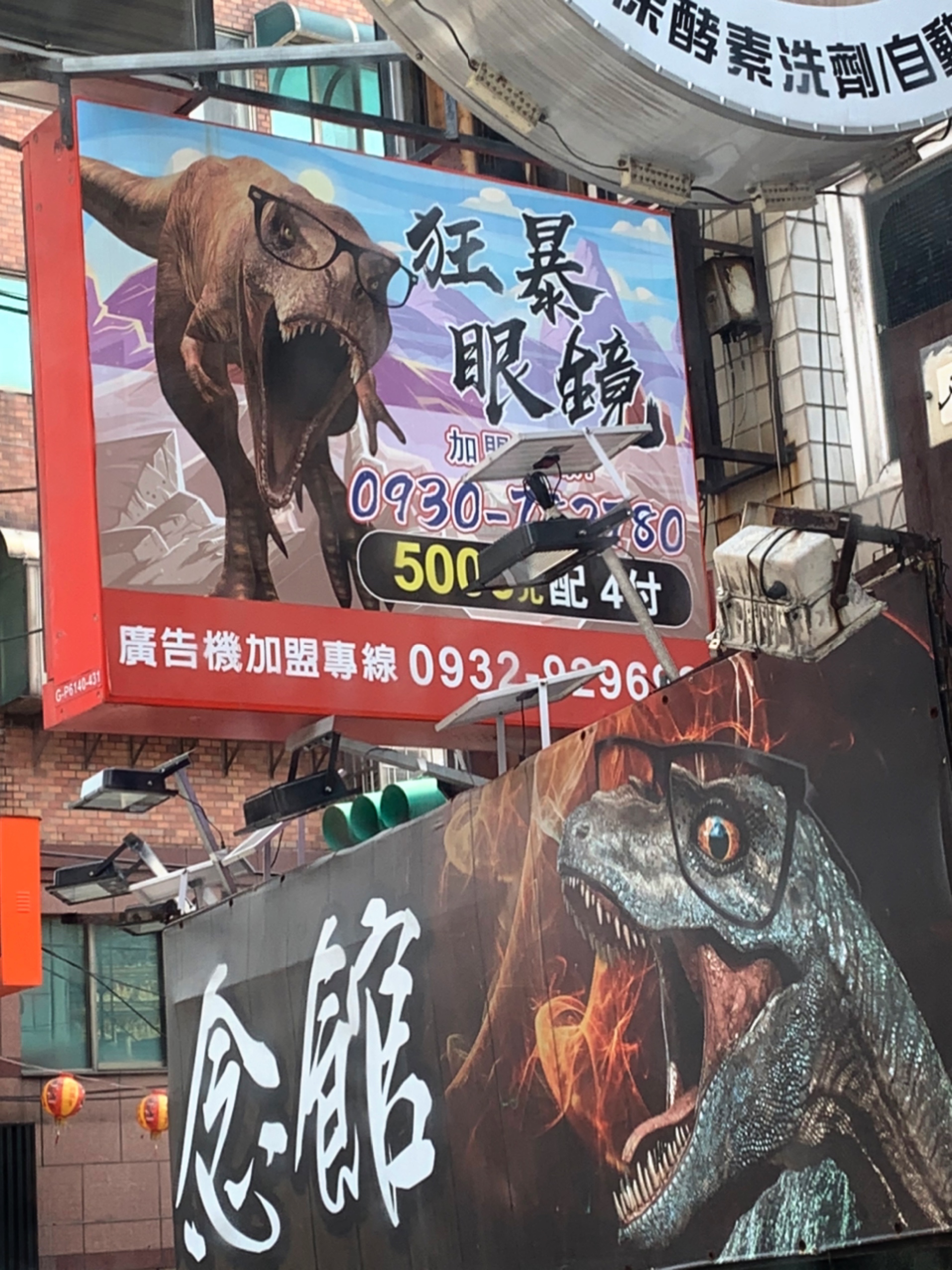
No comments:
Post a Comment